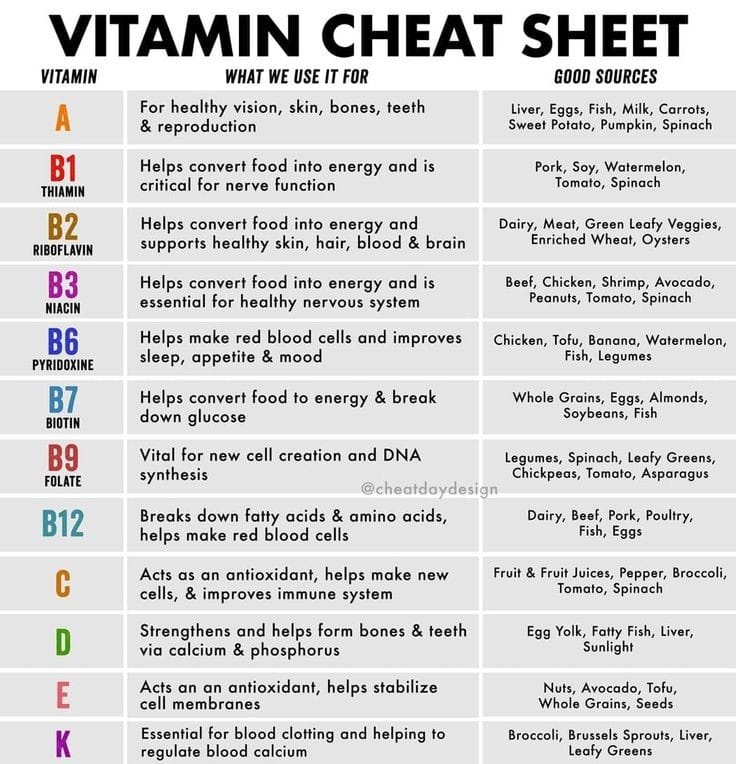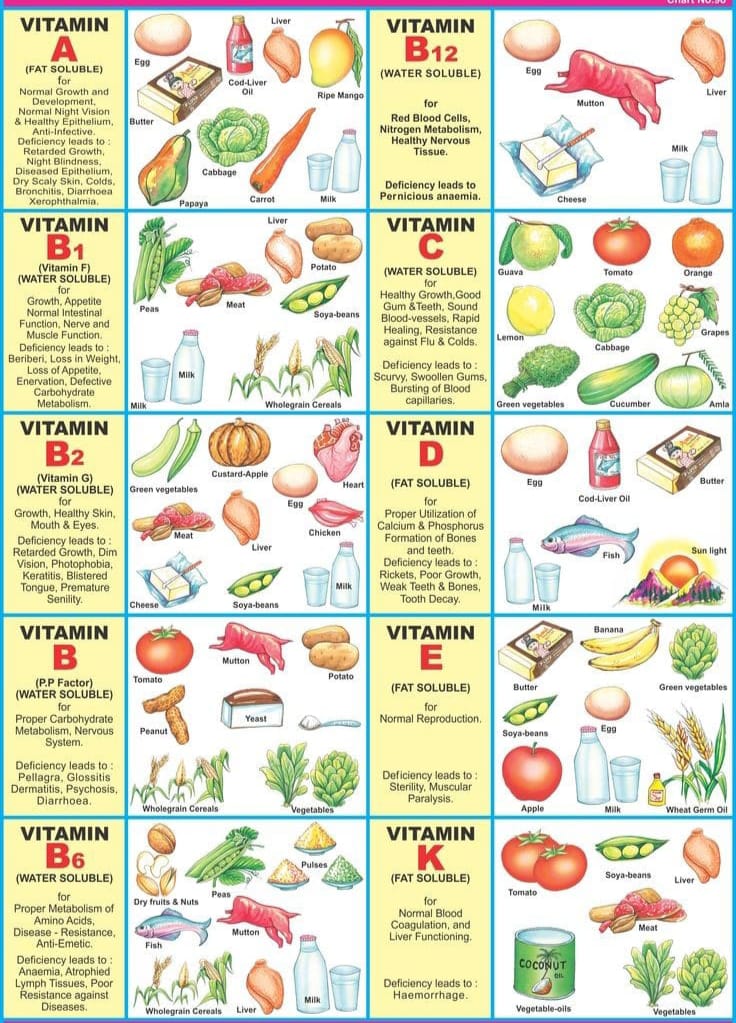Vitamin
- Vitamin word derived from the Latin vita means life. Vitamins are organic molecules
that are essential for maintaining good health and growth. Vitamins are required
in trace amounts and they must be obtained from the diet because they are not
synthesized in the body. In 1912, scientists found that in addition to carbohydrates, fats, and proteins, certain other factors i. e vitamins must be obtained from the diet - Vitamins are widespread occurrence in nature, get from both plants and animals.
- Vitamins are nonantigenic and are effective when taken orally
- All the cells present in the body can able to store vitamins to some extent
- Synthetic vitamins are identical to natural vitamins
- Once the growth and development of the body is completed vitamins remain essential nutrients for the healthy maintenance of the cell, tissues and organs
Why are they good for us?
• Prevent illness: prevent and cure various diseases caused by a deficiency
• Boost the immune system: they build up the resistance of the body against disease
• Greater need due to a worse environment
• Slower aging
• Help the digestion and utilization of mineral salt and carbohydrates in the body
• Stimulate and give strength to the nervous system
• Improves vision
• Body metabolism
• Maintenance of proper health and normal growth of the body
TYPES OF VITAMINS:
1. Fat-soluble vitamins
• Vitamins that dissolve in fat. Because fat is easily stored in our body
• These vitamins are oily substances, not readily soluble in water
• They contain carbon, hydrogen, and oxygen
• Fat-soluble vitamins can be regarded as lipid
• Fat-soluble vitamins stored in the body, they stored in adipose tissue and in the liver
• The fat-soluble vitamins are vitamin A, vitamin D, vitamin E, and Vitamin K
• In this vitamins A, E, and K are terpenoids, whereas vitamin D is a steroid.
What is the need for fat-soluble vitamins?
• Important for vision
• Bone formation
• Antioxidants
• Formation of blood clotting
• Absorption of minerals such as calcium and phosphate
2. Water-soluble vitamins
• These vitamins are those which are soluble in water.
• These vitamins can improve the water content in our body
• Our body is a water environment, these vitamins can move through our body easily
and they can also be flushed out by the kidney.
• Used as cofactors by many enzymes
• Water soluble vitamins cannot be stored in the body because they will get excreted
with urine
• These types of vitamins include B-complex vitamins and vitamin C
• There are eight B vitamins, including vitamin B1, vitamin B2, vitamin B3,vitamin
B5,vitamin B6,vitamin B7, vitamin B9 and vitamin B12
• They are found in many plants and animals and should be taken daily
What is the need?
• They are essential for normal growth and development
• As cofactors for enzymes
13 ESSENTIAL VITAMINS:
1. Vitamin A
2. Vitamin E
3. Vitamin C
4. Vitamin D
5. Vitamin K
6. Vitamin B1 thiamine
7. Vitamin B2 riboflavin
8. Vitamin B3 niacin
9. Vitamin B5 pantothenic acid
10. Vitamin B6 peroxide
11. Vitamin B12 cobalamin
12. Vitamin B9 folate
13. Vitamin B7 biotin
WHAT IS VITAMIN DEFICIENCY?
Vitamin deficiency is also called avitaminosis. Vitamin deficiency is nothing but a shortage/deficiency of one or more essential vitamins in the body
SYMPTOMS OF VITAMIN DEFICIENCY:
• Fatigue
• Muscle cramps
• Bone and joint pains
• Dry skin and hair
• Bone density gets lost
• Bruising
• Irritability
• Depression
• Change in color of skin
• Poor wood healing capacity
• Susceptible more to infections and illness
What is the test for vitamin deficiency?
Complete blood count (CBC)
CAUSES OF VITAMIN DEFICIENCY:
• Poor choices in diet
• Person’s absorption capacity to certain vitamins may be low
VITAMINS CHART
COMPLICATIONS OF VITAMIN DEFICIENCY:
• Loss of vision
• Weakness
• Loss of sensation
• Cognitive changes
• Mental disturbance
• Memory loss
• Tachycardia
• Restless leg syndrome
• Stroke
• Spine disease
• Insomnia
TREATMENT FOR VITAMIN DEFICIENCY:
Vitamin supplements:
• Synthetic or natural substances which can be purchased as pills, capsules, powder, or liquid forms.
• Best when accomplished by a well-balanced diet
• Do not replace a healthy diet
•Dietary changes
• Consume more fruits and vegetables and Maintain a proper diet
Replacement of vitamin

 Click Here To
Click Here To
